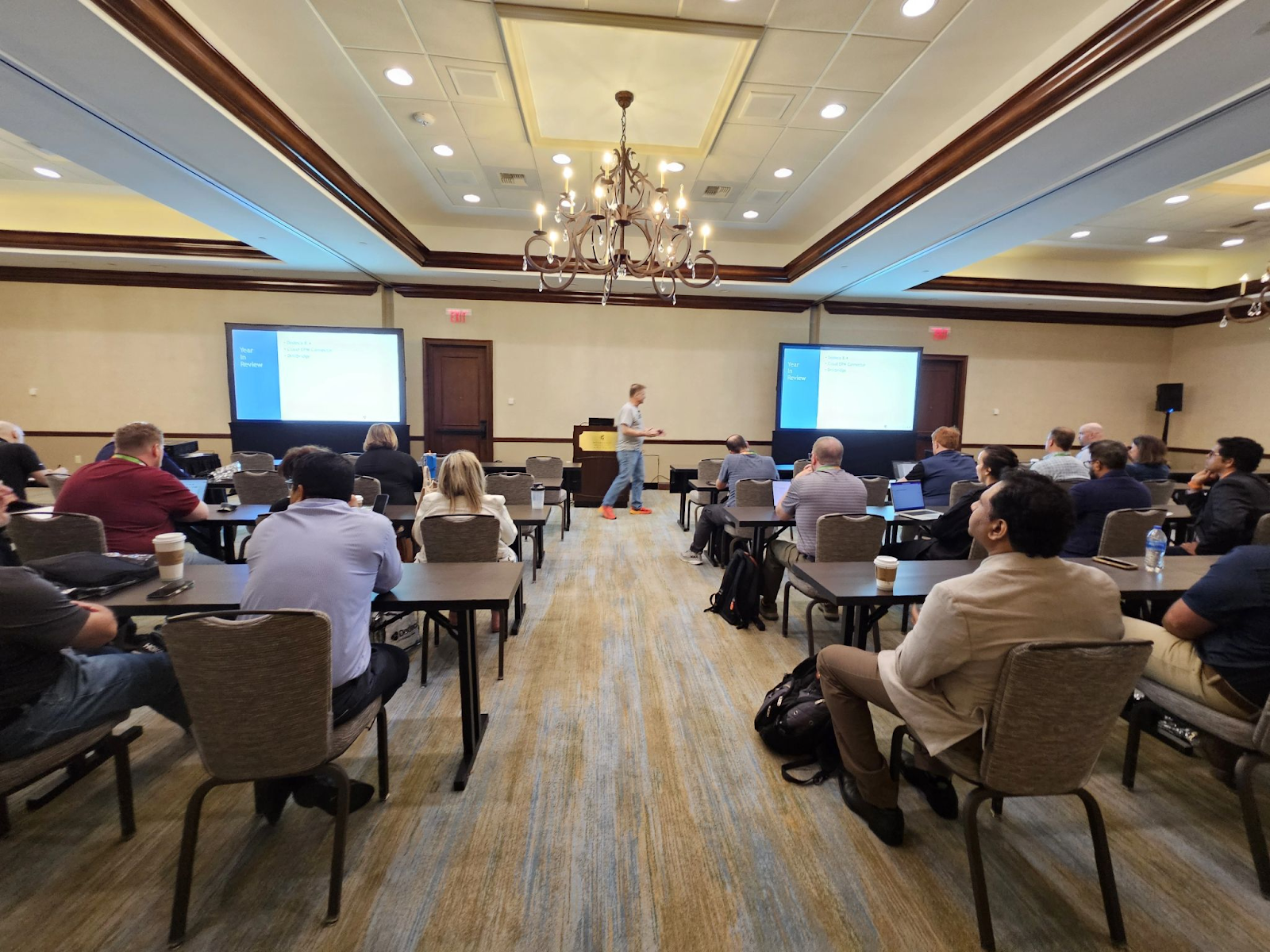Sunday Symposiums
I kicked off my conference early on Sunday morning at the Essbase symposium. I was glad for the opportunity to meet Ekrem Soylemez in person after he gave his presentation. I'm excited that Essbase is going to get some energy from someone with many years of experience in the non-Essbase OLAP world. Ekrem covered federated partitions. This is the third consecutive Kscope where the Essbase symposium has focused on federated partitions therefore you can rest assured this is the direction. Federated Partition Essbase will eventually make its way to EPM Cloud. I'm glad they're finally moving to Essbase 21C by the end of this year as they're currently running on some 11.1.2.4 version that is (I can't believe I'm writing this) 10 years old!
I was a presenter at our Dodeca Symposium, demonstrating how to integrate EPM Cloud data with relational database details on the same grid. The hands-on lab for newcomers was equally rewarding. A highlight was Kroger's presentation about using Dodeca to enhance their Oracle FCCS and EPCM implementations, including automated report distribution and validation workflows. We were fortunate to have Edward Roske present about AI in our symposium. My key takeaway there is that the knowledge worker jobs in the future will be dominated by those who best know how to leverage AI.
Monday Community Event
The only reason I'm mentioning this is because my teams #Missing Integrity and Sparse Crowd won both the trivia contests!
Sessions
The conference's focus on AI integration was inspiring and unsurprising as it is the buzz word in just about every industry in the world right now. Connor McDonald's session on transitioning from database expert to AI newcomer really crystallized how real-world concepts translate into vectors. Jason Jones' "From Cubes to Cognition" opened my eyes to AI's potential in Essbase environments. I'm already envisioning AI applications for Dodeca in view creation and anomaly detection. Tim Tow's presentation on mastering spreadsheet efficiency highlighted practical approaches to efficiently automating business processes. It also highlighted the scary reality that spreadsheets are extremely error-prone.
Dodeca Customer Panel / Tuesday Night Event
I always love to hear our customers talking about how much they love Dodeca. They really, really love Dodeca. On Tuesday, leaders from Kroger, Mastercard, and GE Vernova shared how they’re using Dodeca as the engine behind their business operations. Later that night, we invited everyone to Old Hickory to enjoy a seafood and steak extravaganza. If you come to Kscope26, hit me up for an invitation as our Tuesday night event is not to be missed.
AI
It's all AI. Everything. It's going to touch everything and be integrated into every tool. It's going to increase productivity dramatically. It's going to impact our work and personal lives in ways we can not yet imagine. This transformation will be on the level of the industrial revolution, computers, and the internet. It feels like it might even be bigger.
EPM Cloud
I heard from so many Oracle customers who are implementing the entire EPM Cloud suite. I don't remember hearing that at previous conferences. It seems like the snowball rolling down the hill is unstoppable at this point. Recent earnings announcements from Oracle reinforce this.
Wednesday Night Event
It was a blast seeing everyone cut loose after a few days of intense learning. There was great energy in the Karaoke room and an awesome relaxed vibe on the back patio with artisanal whiskey and cigars. I thoroughly enjoyed seeing my first drone show and applaud the conference committee for pushing the envelope.
I hope to see everyone in Denver next summer. Make it a priority!














